Science and society
We also conduct research to make meaningful contributions to society. For instance, by talking about our research, contributing to community projects or by inviting people to help us with our research. Scroll down and discover how Science and Society can mutually reinforce each other.
Physics in the picture: cancer cells as an explosion of fireworks
When you think of physics, do you think only of complicated formulas? You’re not the only one. Therefore, every year, the Leiden Insitute of Physics organises the LION Image Award to show another side of it. The winner of the 2022 photo competition captured his research about cancer metastasis in an image that is reminiscent of fireworks.
-
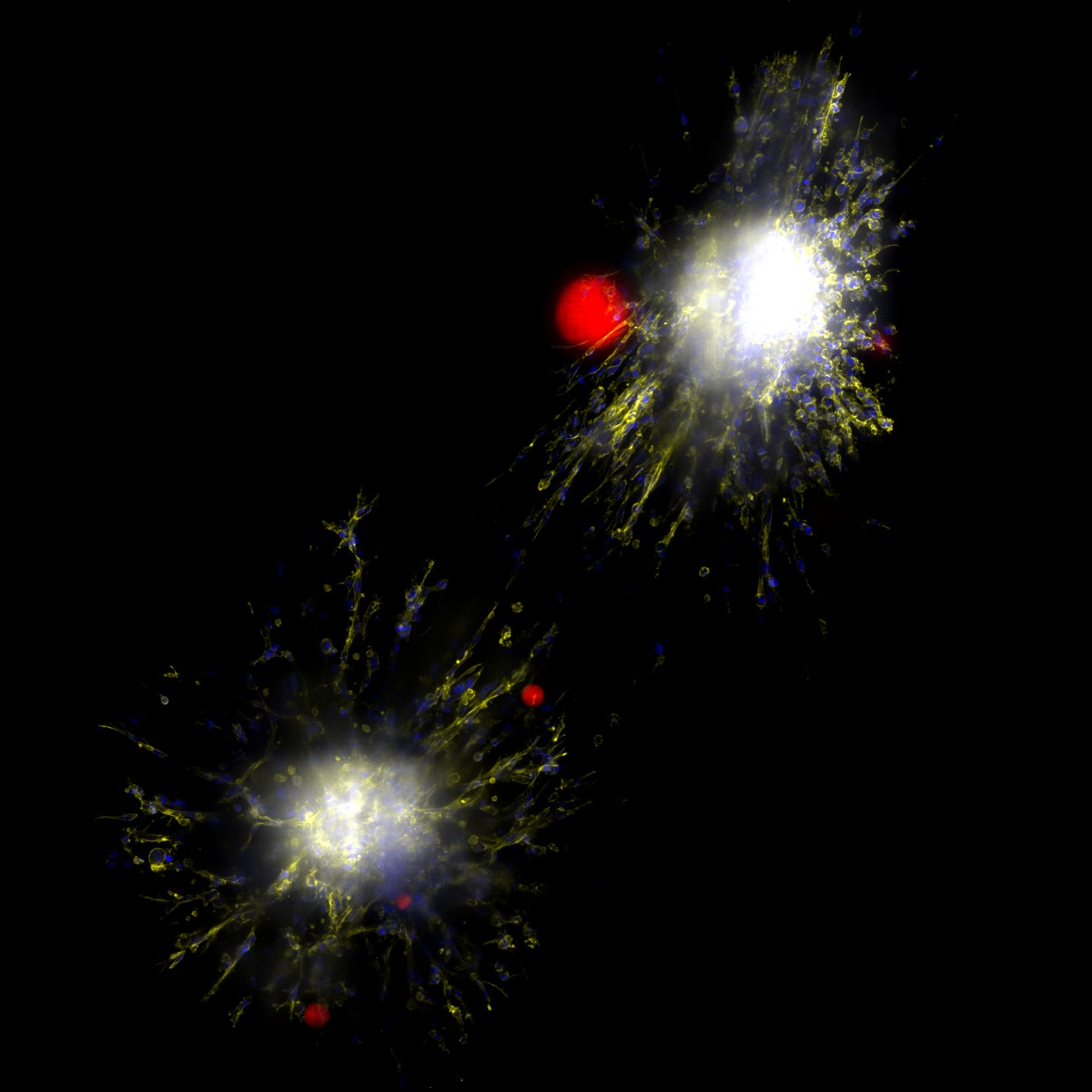
First place for the image ‘Spheroid Force Sensing’ by Rick Rodrigues de Mercado -
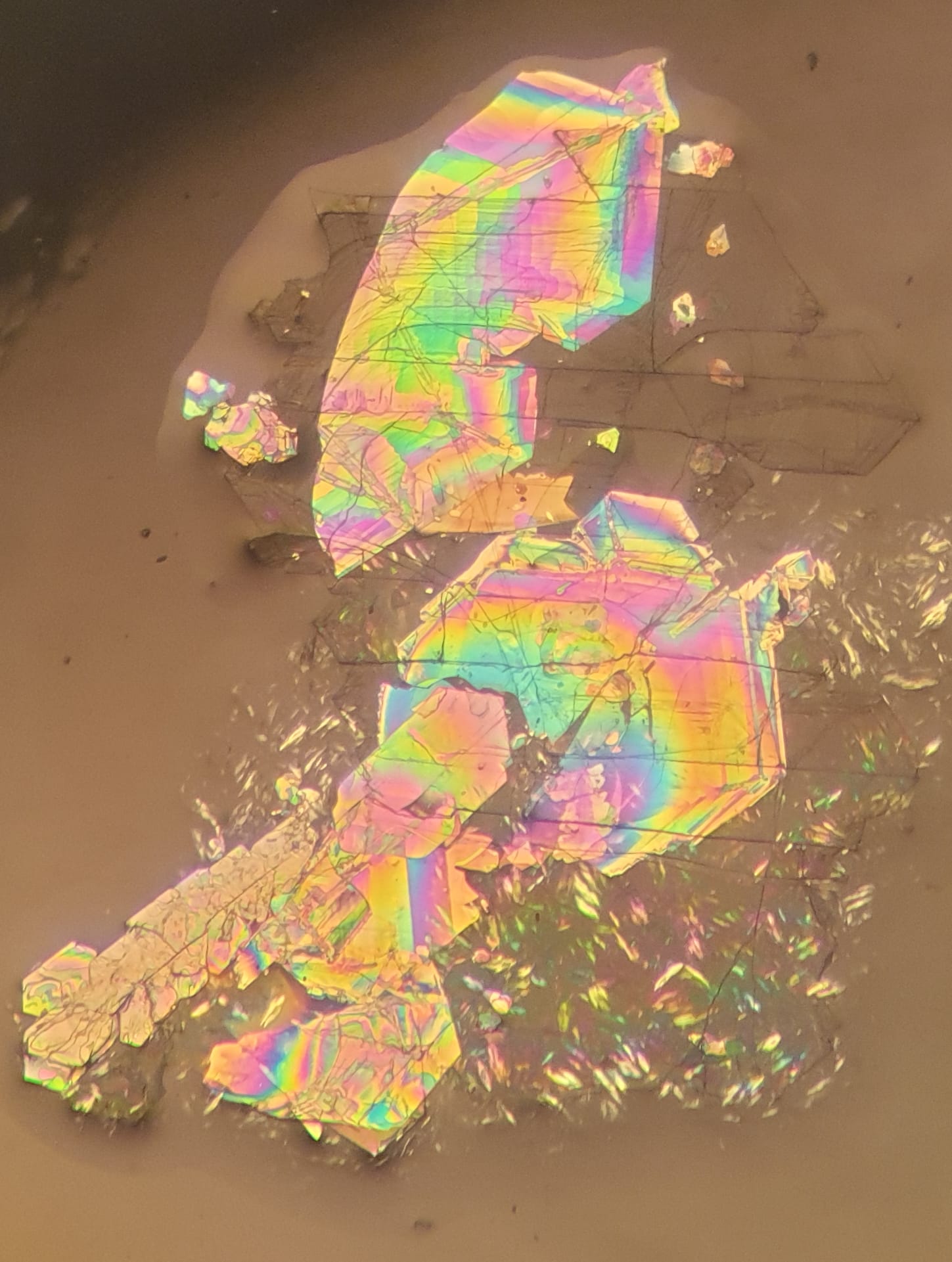
Robert Smit got second place with ‘Colourful Organic Crystals’ -
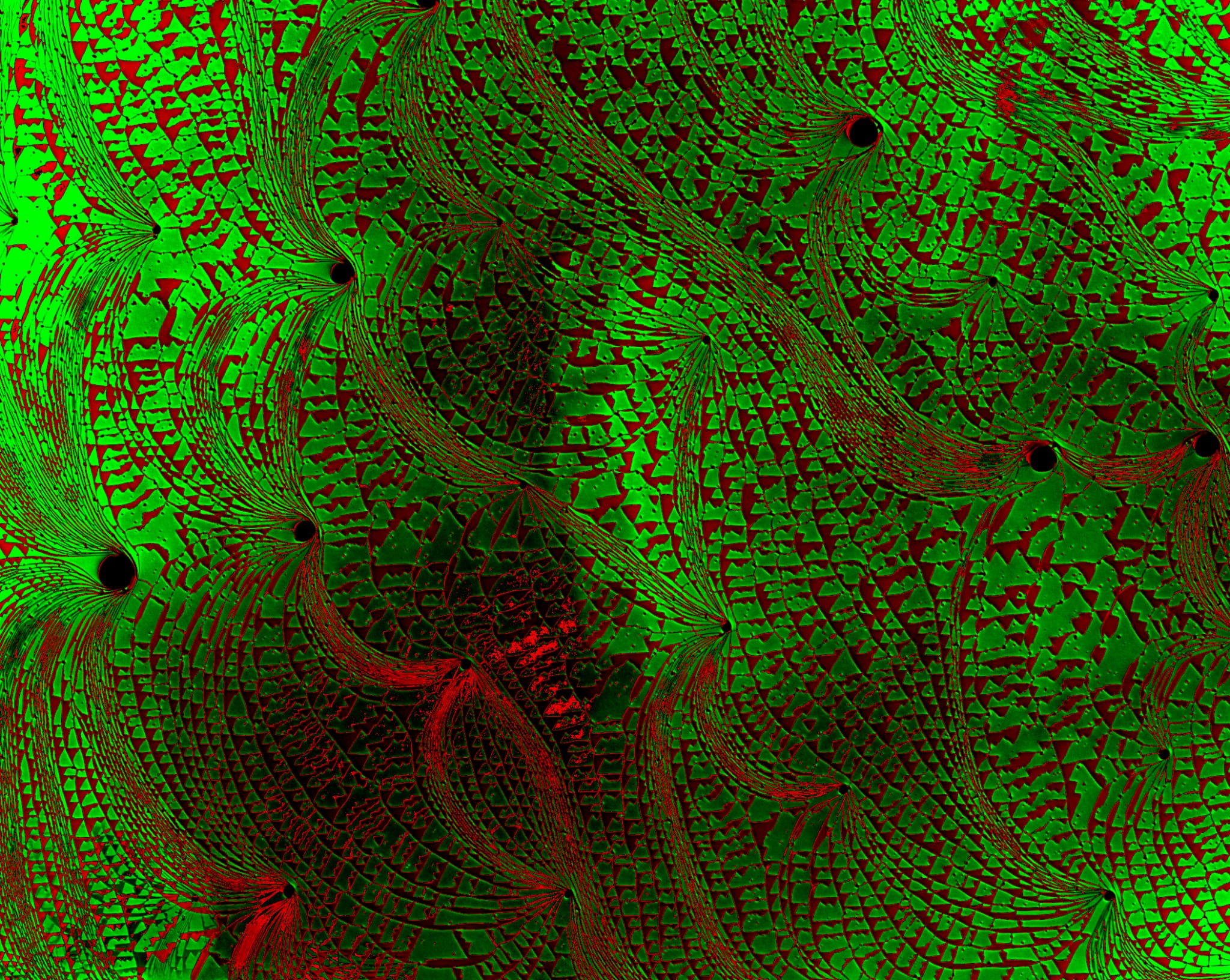
The third place went to Guid Stam with ‘Merry Silicon Christmas’ -
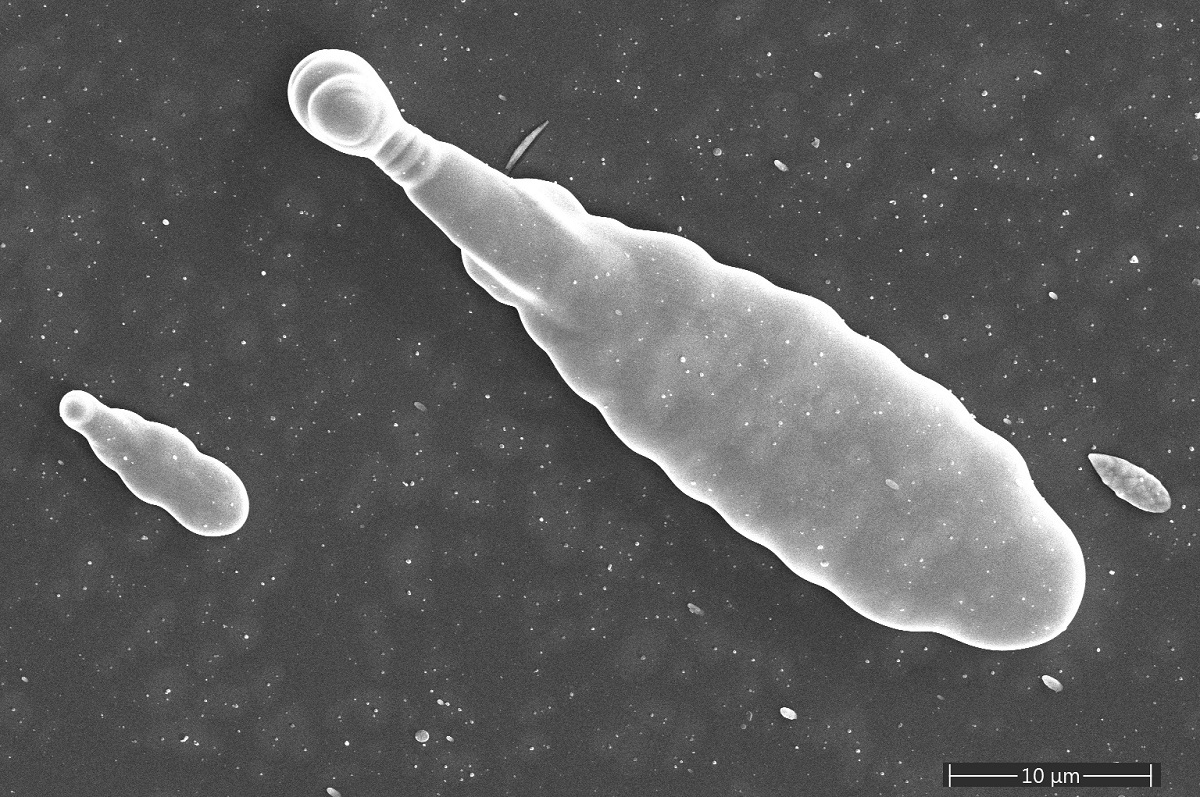
‘Splash’ by Amin Moradi -
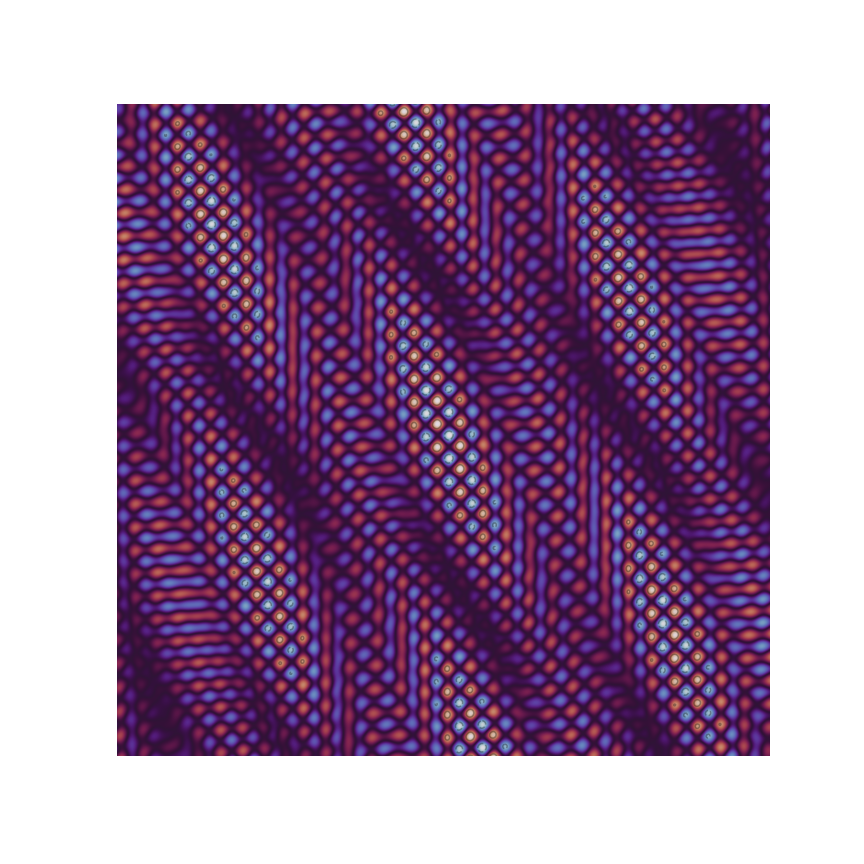
‘Protein condensates associated with neurodegeneration viewed in a confocal microscope’ by Anna Bakker
Why you should publish negative data

‘It is important to publish negative data, especially when it comes to animal experiments. Then someone else won't repeat the study.’
As a bachelor student Bio-pharmaceutical sciences, Femke Vlaswinkel wrote the research proposal she carried out during her master’s. She graduated with honours and published her research in a scientific journal. But there was one thing she wasn’t completely satieshied about: the hypothesis she came up with turned out to be wrong.

Together with her supervisor Ilze Bot, Femke explains how that felt and why they chose to publish the results anyway.
Experiencing the beauty of the Universe at the Old Observatory
The James Webb Space Telescope (JWST) allows us to look deeper into the universe than ever before. Not only does this provide a mass of data, but also stunning images. This year, you could admire all of that in the Old Observatory’s exhibition: JWST Universe. Old Observatory manader Naor Scheinowitz: ‘The exhibition literally places you in between the images. The artwork considers the JWST not only as a scientific object, but as an object relevant to the whole of human culture.’

The urban mine is full of resources, but a circular economy is still too ambitious
‘Using construction waste as filler material for raods is just a glorified form of dumping.’
Reuse everything and stop producing waste. By 2050, the Netherlands should have a circular economy. However, the new Integral Circular Economy Report by the Netherlands Environmental Assessment Agency shows that there is still a long way to go. For the report, the Institute of Environmental Sciences Leiden (CML) mapped how many raw materials we can reuse from old infrastructure and existing buildings.
You should eat herring on the coast and not in Maastricht

For thirty years, the Dutch Newspaper AD conducted an annual search for the best herring. This came to an end when economist Ben Vollaard, based on a statistical analysis, claimed it was rigged. But that claim doesn’t smell right, says Leiden statistician Richard Gill. ‘The way you code and process data can have a big effect on the outcome of an analysis.’

My job rocks: ‘Here I can grow in both science and art.’
A passion for video games, visuals and science: it almost seems impossible to bring all of this together. Yet, scientific animator Vera Williams found that dream combination at NeCEN's microscopy lab. ‘An image or animation can help clarify the content of complex research.’

A snippet from the animation for the exhibition at Boerhaave
This video can not be shown because you did not accept cookies.
You can leave our website to view this video.How a game can show that working together is essential in the nitrogen crisis
The Netherlands is embroiled in a complex nitrogen crisis. Berent Baris wants to use his NitroGenius game to demonstrate the complexity of this crisis. In the game, staff at the Ministry of Agriculture, Nature and Food Quality (LNV) take on the roles of different stakeholders.

PhD candidate Auke-Florian Hiemstra named Person of the Year
Auke-Florian Hiemstra, an external PhD candidate at Naturalis Biodiversity Center, is the Leidsch Dagblad Person of the Year 2022. With more than 1,000 votes, he was the Leidsch Dagblad readers’ favourite.
Hiemstra, who is conducting research at Naturalis into how animals use plastic in their nests, was nominated for his environmental activism. Together with his girlfriend Liselotte Rambonnet and a team of volunteers, he takes to the city’s canals every week to rid them of plastic waste. He has also written a children’s book about animals in the city.
White paper: we can’t just let smart cities happen
Do we want scan cars that issue parking fines and spot illegally dumped waste? What problems would that actually solve? In duo interviews in a new Leiden-Delft-Erasmus Universities white paper, 17 researchers and practitioners start the conversation that society desperately needs to have. ‘We’ve outsourced the visionary thinking to tech companies.’


